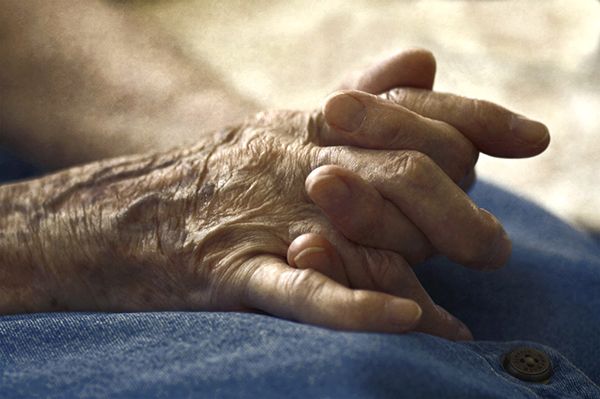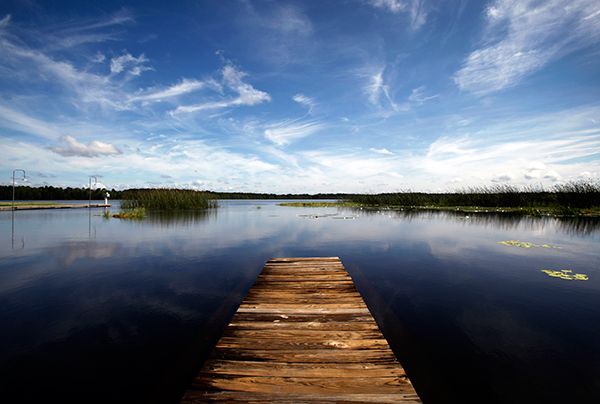By Uniform Stories
This is a guest post from Matthew Heneghan. Visit his Medic Memoirs Facebook Page here.
It was the morning after. Or to be more precise, simply later in the morning. The sun was struggling to rise in a beautiful pink sky, and I stood by the pond and reflected on the events that happened deep in the blackness of the night before.
I was still in my uniform pants, utility belt still fastened. A fleece jacket hid my paramedic shoulder patches. I had just come from shift, but didn’t want to go home yet. No one was home anyway.
My mind wandered to that apartment building in the south end that I had been hours before. Inside, an old woman — frail, small, tired. She had called because while laying next to her husband of 67 years, she awoke to what appeared to be her husband having trouble breathing. More accurately, these were her husband‘s last breaths.
She had managed to get to the phone and call 911, and my partner and I responded to the scene. Highest severity call. Cardiac arrest. This was to be confirmed when we arrived and firefighters were performing CPR. We readied our equipment and the fire captain took the old woman next door to the neighbor’s apartment.
I worked quickly and skillfully — I was “on” that night. I placed the pads on the old man‘s chest; you could almost count his ribs through the grey flesh that coated them. He remained asystole the whole time. This would lead to the eventual calling of the hospital and culminate in the termination of our efforts. He was gone.
We all stood from our positions and looked down at this man, this body that lay at our feet, tubes from his mouth where we tried to breathe for him, smaller tubes from his arm where we tried to replenish him, medicate him. Stickers and electrodes, tape and torn clothing.
In that split second, no one moved, no one said anything, we just stood there. Eventually, we cleared the fire department and other EMS crew that had joined us. It was now just me and my partner, and we walked next door to the neighbor’s apartment and knocked on the door.
We entered, and another elderly woman sat next to the frail, white-haired lady that had called us to her home. We were about to tell her we had lost. He had lost. She was going to be alone. My partner kneeled down beside her, and I took a knee on the other side of her. I placed my left hand onto her shoulder, as if to physically comfort and simultaneously apologize for our loss in the fight that she had expected us to win.
My partner was compassionate in his tone, but delivered the news with no garnishment: “Ma’am I am really sorry, but your husband —what’s his name?”
She looked at me and my partner and said softly “Bob, Robert.”
My partner looked at her and said, “Well, Doris, I am really sorry to have to tell you this, but Robert has passed, OK — we did the best we could, but it was just not successful.”
The neighbor now sat motionless in the kitchen. Doris whispered, “May I see him, may I go see my Bob?”
My partner and I gestured yes, yes of course. We helped her up and told her that “he” may look different, making reference to the tubes and wires that lay with him.
We reentered the apartment where the body of this poor old woman’s husband lay still in the middle of the living room floor. I heard her moan but seemingly struggle to keep it silent from us.
“Please, can you help put him back in bed? I’d like to say goodbye,” she said.
You see, this poor old woman explained that the years spent on this planet had left her with a back that didn’t let her bend anymore, knees that couldn’t support the transition from floor to standing, and brittle bones that wouldn’t allow her to kneel down beside the body that once housed her husband.
We gently explained how we couldn’t move the body. She comprehended but turned away from us, and without any regard for herself was about to simply let her body fall to the floor to be with her husband. My partner and I each outstretched our arms and placed them around her arms and shoulders.
You could hear the snapping and clicking of the old tired joints as the old lady was lowered to the floor. She was no longer quiet in her grief. The wails of emotions escaped her as she bellowed out in disbelief. She cursed God, then asked why. She would say please over and over, her anger would change to defeat and then back to anger.
God seemed to bear the brunt of this, as that’s who she was speaking to. Both my partner and I stood silently, allowing for this to take its course. We stood ready to assist this poor old woman back to standing whenever she was ready. By now a supervisor on our night shift had arrived, and he joined us in our silence.
It is hard to be around a mourning person. It is even harder when you place yourself in their shoes. Sixty-seven years spent in love, in unity, with someone, only to now be alone. Pictures of their love, their youth, and their lives hung on the walls. Bob seemed to have been a pilot at one point and Doris appeared to have come from a farm. A lady of the earth found a man of the sky and they lived and loved.
We would eventually leave after the police arrived to take control and assist the old lady going forward.
And this brings me to the wooden wharf that lay nestled in the north part of the city next to my home. I was standing there, not even sure why, but it’s where my body and mind had taken me. I would take sips of my tea, track an early morning jogger from across the pond, and then look back to the sky.
I guess I found myself wondering — you see I am not religious, but even I have found myself yelling as this old lady had done. Screaming to the sky in anger and disbelief. But I looked to the sky this morning, and finding beauty in it, I also found complexity. Such beauty around me, and such pain to others under the same sky.
I think that’s the hardest part of being a first responder — being around other’s pain and then going home and calling it a “job.”




